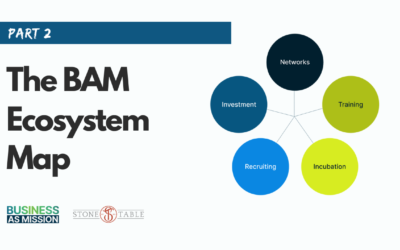Scriptures on Servanthood: Leading from Baggage and Gospel Insights

For our discussion on the theology of work today, I thought I would bring some scriptures on servanthood and insecurity. We all deal with insecurities. All of us. Those nagging little voices that whisper, “you’re not enough.”
This, of course, is entirely true. On our own, you and I are not nearly enough. These voices sort of have a point. So, what do we do with all this messy stuff they stir up?
Wrestling with insecurity doesn’t mean you’re a terrible person; it means you’re a normal, broken, sinful human being. But when it comes to leadership and our theology of work, insecurity better be first on your repentance list. Our insecurities don’t just make us weak leaders; they make us dangerous leaders.
One of the scriptures on servanthood that we can pull from was Saul when he was anointed king (1 Samuel 10). His insecurities were on full display. Scripture tells us that Saul was a head taller than everyone else and the best-looking man in all of Israel. He had all the outward characteristics we love in our leaders. And yet, when the people gathered to anoint him as their king, no one could find him anywhere.
“So, they asked the LORD, “Where is he?” And the LORD replied, ‘He is hiding among the baggage.’” (v. 22)
Outside, Saul was the perfect leader. Inside, Saul was terrified.
Saul was understandably overwhelmed. A few chapters earlier, he minded his own business plowing a farm field. Now he was to become Israel’s first king? I would’ve been scared too. But as the story of Saul unfolds through the remainder of 1 Samuel, we see this leader who once hid in the physical baggage never address his emotional and spiritual “baggage.” Saul never dealt with his insecurities; he lived into them.
King Saul went from a celebrated young leader to a fearful, manipulative, vengeful, and murderous psychopath. He tried to pin David to the wall with a spear on multiple occasions. In a panic, he sought advice from a demonic medium. He made strategic battle mistakes because he got ahead of God and thought he had to be the hero. He even threatened to kill his son because of a rash vow he made in front of his men.
Theology of work and leadership shows that Saul led from his fear. These unrepentant insecurities didn’t just make him a bad leader; they turned him into a dangerous human being.
When I read stories like Saul’s, I try to remember that I am not immune to the baggage that comes from being a sinful man. If not for Jesus, I am capable of horrific things. And even worse, I’m capable of spinning those horrible choices as good and right and necessary. My insecurities deceive even me.
If you find yourself in a leadership role of any kind, please deal with your insecurities. The Gospel offers us hope, not in just telling us what we need to do but empowering us to truly change from the inside-out. The finished work of Jesus becomes the foundation for fundamental transformation, and this always begins with humility and repentance.
As a leader, I would encourage you today to let the Holy Spirit search your heart. We all wrestle with insecurity, but as you learn to recognize it, confess it to Jesus. Call it out as the sin that it is and repent of it. Ask Him to help you find true rest and peace in Him. Allow the resurrected King to resurrect a true sense of security in your heart, confidence, and boldness that comes from the Gospel alone.
We can learn from the scriptures on servanthood that you don’t have to lead from your baggage. Leaders please, for the sake of all those who depend on you, let Jesus heal your insecurities. What’s at stake is too important.
Scriptures on Servanthood: Gospel Insights from a Venture Capitalist
I’ll leave you with one of the best scriptures on servanthood.
If you could ask a successful leader one question, what would it be? I found myself with that opportunity recently, riding in the passenger seat of a car next to a highly renowned businessman—just the two of us, and 25 minutes of highway between us and our destination.
You wouldn’t know his name. You wouldn’t recognize his face. If he passed you on the street, there’s no real reason he’d ever catch your attention. But he’s a venture capitalist – a real-life Shark Tank investor – and he’s made more money (and given more away) than anyone I’ve ever hung out with. He’s also a Christian.
And while his gifts in business have brought the dreams of countless upstart entrepreneurs to life, his generosity has brought life and hope to countless numbers of people across this globe. I was fascinated, and outside of a few crazy morning drivers, I had his undivided attention.
Digging Deeper
“Obviously, you’re skilled at what you do,” I noted. “But lots of people are good businessmen. What’s your edge? What makes you special? What’s your ‘secret sauce?’”
He paused, took a deep breath, and let the awkward silence hang in the air just long enough to make me uncomfortable. I fought the urge to fill the void.
Finally, he began:
“A number of years ago, my wife and I were watching one of those old, cheesy Bible movies. At the point in the Old Testament, God asked Moses to lead his people out of Egypt. I watched as the actor playing Moses argued with God, as he wrestled and toiled in the tension of what God was asking him to do. And as I watched Moses pray and beg God for help, something hit me:”
Moses didn’t know the end of the story. He had no idea what was about to happen!
Revelation
We can read one of these scriptures on servanthood, knowing the outcome. The plagues, the people, the leaving, the chase, the Red Sea’s miraculous parting, the provision of daily food in the desert – we know how it all turns out! Moses did not. All he had was that God had spoken and his trust that God would lead.
I decided that was a pretty good way to run my business.
“I start each day by asking God to speak, and then I trust He will empower me to go wherever He leads. If I have any kind of secret, I guess that’s what it is.”
“Moses answered God, ‘but why me? What makes you think that I could ever go to Pharaoh and lead the children of Israel out of Egypt?”
“I’ll be with you,” God said.
That’s some simple, solid advice. Suppose you incorporate the theology of work into your business. In that case, I wonder how all of our journeys might change if we incorporate the theology of work into our lives? What does it look like to be committed to surrendering our insecurities and asking God to speak daily?




